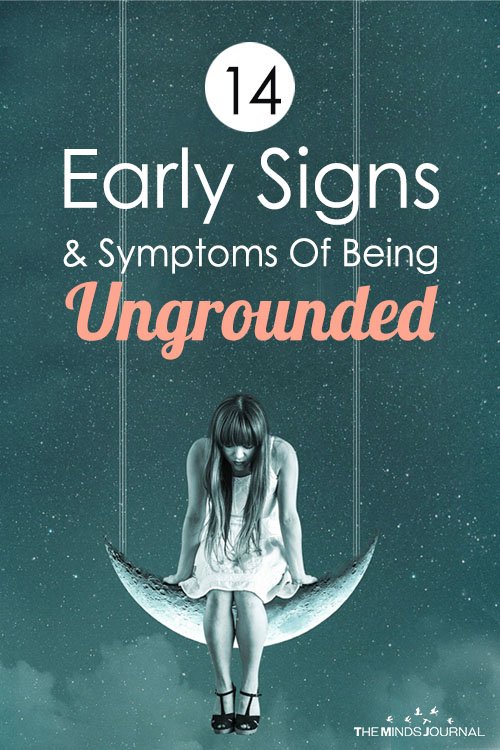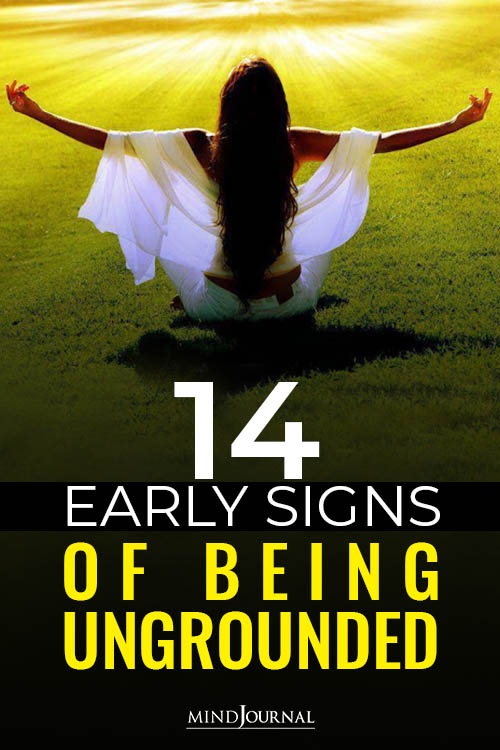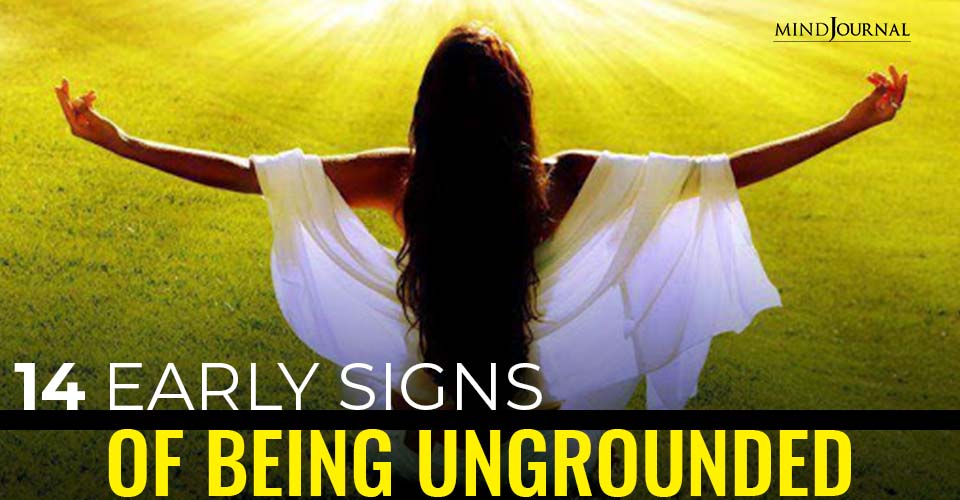Through my Facebook posts, I have written about the importance of being grounded, ways of grounding, yourself. I don’t think I ever really did anything really looking at what the symptoms and indicators of being ungrounded are.
And, for me, this is good enough, so I am now going to tackle the mammoth-like undertaking and go through some of the more common signs are, and some of them may be things you never thought about related to being ungrounded.
There are signs that indicate that you may be ungrounded that go completely unnoticed, or you chalk them up to working too late, an inability to focus or concentrate on what you are doing for any length of time due to hunger, headaches and the like. These things can actually be the early signs that you need to centre and ground yourself. (Click here for how to ground yourself – a basic magical technique)
Related: The Sanskrit Effect: How Chanting Boosts Cognitive Functions
A Quick Look at Some Signs of Being Ungrounded
The symptoms of being ungrounded can actually sit nicely into four categories physical, emotional, mental and spiritual.
Some of them may overlap between each category, but in general, they will fit within these categories.
Here are a few examples:
- Feeling dizzy (mental)
- Tiredness after waking (mental and physical)
- Feeling “spaced out” (mental)
- Inability to focus and concentrate (mental)
- Forgetfulness (mental)
- Clumsiness (physical)
- Agitation (emotional)
- Inability to complete tasks (mental and physical)
- Losing track of time (mental)
- Inability to understand what people are saying to you (mental and emotional)
- Inability to communicate effectively (mental and emotional)
Related: 10 Ways To Enhance Your Mental Health
Let’s look a little deeper
When I am ungrounded I find that I become clumsier and my everyday tasks become more difficult.
I become forgetful about simple things like forgetting to put detergent in my washing or forget to take a towel with me to the shower, these things can be attributed to my illness but when I am ungrounded they get worse.
When I meditate I tend to fall asleep, especially in the evening, and while I would love to chalk it up to my medication alone, falling asleep during meditation can be a sign that you need to do a little extra grounding work before you start your meditation.
[NOTE: I find I get so relaxed during my meditation sessions that I just fall asleep naturally very easily.]
Another the indicator I have found through my magical experiences, when I am ungrounded I have more bad dreams and wake up more often in the night too, and when morning comes I cannot open my eyes. It feels like they have been superglued together.
Signs, Symptoms, and Indications.
Working on noticing the signs is just as important as the act of grounding and earthing oneself. The signs can be easy to miss or to shrug off as something else.
If one or more of these affects you it can mean that you need to do some active work on grounding and earthing yourself, but I wouldn’t worry about it too much, I have seen a lot of people in today’s society who could benefit from a little grounding.
If you find that one (or more) of these things are affecting your life greatly, that is time to take a moment to do a little grounding.
1. Physical Signs & Symptoms:
Treading on things – if there is something on the floor that is oddly shaped, spikey or hard you are going to tread on it; it’s a wise idea to make sure all Lego is out of the way.
Walking into things – walls, doors, door frames any things that have been a stationary object for a long time, you could walk into, your poor elbows will thank you afterward.
Coordination goes out the window – energy is concentrated in all of the wrong places, and this causes an imbalance which needs to be sorted out.
Being more accident prone than normal – you find that you are dropping things more, knocking things over and the general bumps, bruises and the like.
Feeling cold especially in the extremities – I have heard that having cold hands and/or feet can be a symptom of being unground if you don’t have a pre-existing medical condition
2. Emotional Signs & Symptoms:
Getting the Heebie-jeebies – especially when you are watching things that are gory or frightening.
Being fearful – especially about the frailties of the human body and mind.
Feeling uneasy – at times when you know there is no logical reason to feel uneasy but you do anyway. Uneasy about heights, or going somewhere new, or on the more extreme side of the spectrum feeling uneasy about leaving your house.
Fearful about things you cannot change – you see some of the hazards that are out there, like sharp brambles, the thorns on roses and this makes you not want to go into the natural world.
Anxiety and fear about people – have you ever locked the car or front door when people are around because they make you feel uncomfortable? This can be a sign of being ungrounded and not just wanting to be antisocial or alone.
Related: 10 Hidden Anxiety Triggers You Need To Avoid
3. Mental Signs & Symptoms:
Being “in your head” – if you are spending too much time overthinking simple tasks, and spend time meticulously working things out in advance.
Thinking you are “above” certain things – you think that you are above vanity, anger, self-centredness, pettiness, cruelty, and rudeness, basically anything that you feel that are vices and weaknesses for other people.
Related: 8 Tips to Heal from Your Own Toxicity
4. Spiritual Signs & Symptoms:
- Being a daydreamer – when you spend more time in a dream world rather than the real world, it is a sign that you need to being yourself back down to earth.
- Interest in past lives – an elevated interest in your past lives in hopes to find answers for situations in this life, or to simply escape them hum-drum you feel.
- Over-sensitivity to energy – a heightened sensitivity to psychic and technological energies especially during the evening when you are relaxing.
*)O(* Rainbow Love, Light and Blessings *)O(*
Written By: Nixie Vale
Originally appeared on: Magical Recipes Online










Leave a Reply
You must be logged in to post a comment.